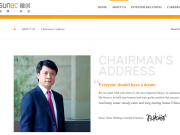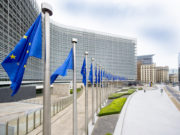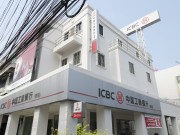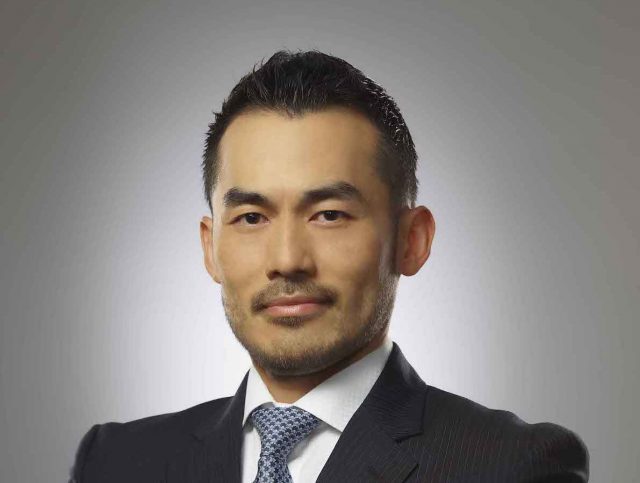Schroders Head of Multi-Asset Management Asia Jason Yu: Is the Russia-Ukraine Situation Fast-Tracking Energy Transition?
June 2022 – This is an expert commentary on faster energy transition due to Russia-Ukraine situation – Is the Russia-Ukraine situation fast-tracking energy transition? by Jason Yu, who is the Head of Multi-Asset Management at Schroders.
 Schroders is a global active asset manager managing more than £574.4 billion (€641.7 billion / $785.1 billion 31/12/20) assets and managed locally by 42 investment teams worldwide. As a global active asset manager, the way we direct capital not only shapes the financial returns we achieve for our clients but also the impact that the companies in which we invest on their behalf might have on society.
Schroders is a global active asset manager managing more than £574.4 billion (€641.7 billion / $785.1 billion 31/12/20) assets and managed locally by 42 investment teams worldwide. As a global active asset manager, the way we direct capital not only shapes the financial returns we achieve for our clients but also the impact that the companies in which we invest on their behalf might have on society.
Is the Russia-Ukraine situation fast-tracking energy transition?

Jason Yu: As one of the world’s major oil and natural gas providers, Russia’s tensions with Ukraine not only disrupted energy supplies, but also triggered shockwaves in commodity markets. From a macroeconomic perspective, we expect high energy prices to persist, which could elevate this year’s global inflation from 3.8% in our November 2021 forecast to 4.7%.
Despite the current fossil fuel issue, energy transition is already an inevitable trend given the increasing challenges of climate change and energy supply shortages. Global leaders at the COP26 Climate Summit have pledged to step up their efforts in tackling climate change with environmental policies that could achieve a green, low-carbon future. The Russia-Ukraine conflict has brought the fragility of the global fossil fuel supply to the forefront, and further highlights the importance of transitioning to the use of economically viable, reliable, and clean renewable energy.
This energy transition will not happen overnight. We think there remains significant investment opportunities, spanning different markets and industries. As such, we believe energy transition will continue to be a long-term investment theme.
1) Tech innovation and policy to drive further development
Jason Yu: Energy transition is closely related to “environment and sustainability”, and we have been optimistic about this theme since early this year. With various markets increasing their expenditure on green infrastructure, this could benefit companies involved in the energy transition story. Valuation of this sector has also come down to a reasonable level.
The production cost of renewable energy is expected to decline further as technological advancements in battery storage and electricity grids continues. This not only creates a favourable environment for accelerating energy transition, but also presents long-term opportunities for investors.
Many emerging markets have just begun their emission reduction process. Against this backdrop, more investments in areas such as renewable energy infrastructure to facilitate the transition are needed. In addition, the European Union is poised to continue its tightening of carbon allowances. As such, investors can pay attention to companies driven by the respective change in supply and demand.
2) China’s commitment to wind and solar power continues

Jason Yu: Elsewhere, China is also a powerhouse in driving the energy transition story. As one of the fastest-growing countries in renewable energy production, China has announced a series of ambitious targets, such as reaching peak carbon emissions by 2030 and achieving carbon neutrality by 2060.
Following the recent National People’s Congress and the National Committee of the Chinese People’s Political Consultative Conference, the Chinese government has proposed measures for the construction of large-scale wind and solar power facilities and enhancements of power grids for renewable energy – all of which aims to drive green and low-carbon developments.
Whilst China is already a major producer of wind and solar energy, with companies taking leadership positions in their areas, we believe there remains potential investment opportunities. In order to achieve its low-carbon economy target as soon as possible, it is expected that China’s focus on sustainability will only intensify. That increases the likelihood for the country to devote more support to the renewable energy sector on the policy front.
3) Mitigating risk through a multi-asset approach

Jason Yu: Investors should be mindful that risks are still in play, including geopolitical tensions and the possibility of stagflation, all of which points to a potential low growth, high inflation environment.
Given the rising cost of raw materials needed for building energy production facilities, coupled with supply chain issues, companies involved in the energy transition story may experience pressure on their bottom line. However, we believe renewable energy remains an attractive, long-term growth theme. Climate change is an imminent challenge, and renewable energy will play a key role in the future energy mix that could address this issue.
Under a volatile and complex investment environment, it becomes even more important for investors to agilely adjust their allocations to enhance the overall defensiveness of their portfolios. Multi-asset investment seems to be a viable solution to meet this purpose. Investors taking a bottom-up securities selection approach are likely able to uncover companies that could benefit from structural changes through a robust, intellectual and disciplined framework. Combined with top-down multi-asset tactical opportunities, it shall provide investors with defensive attributes as they capture long-term capital growth.
This is an expert commentary on energy transition due to Russia-Ukraine situation by Jason Yu, who is the Head of Multi-Asset Management at Schroders.
Important Information
This document is intended to be for information purposes only and it is not intended as promotional material in any respect nor is it to be construed as any solicitation and offering to buy or sell any investment products. The views and opinions contained herein are those of the author(s), and do not necessarily represent views expressed or reflected in other Schroders communications, strategies or funds. The material is not intended to provide, and should not be relied on for investment advice or recommendation. Any security(ies) mentioned above is for illustrative purpose only, not a recommendation to invest or divest. Opinions stated are valid as of the date of this document and are subject to change without notice. Information herein and information from third party are believed to be reliable, but Schroder Investment Management (Hong Kong) Limited does not warrant its completeness or accuracy.
Investment involves risks. Past performance and any forecasts are not necessarily a guide to future or likely performance. You should remember that the value of investments can go down as well as up and is not guaranteed. You may not get back the full amount invested. Derivatives carry a high degree of risk. Exchange rate changes may cause the value of the overseas investments to rise or fall. If investment returns are not denominated in HKD/USD, US/HK dollar-based investors are exposed to exchange rate fluctuations. Please refer to the relevant offering document including the risk factors for further details.
This material has not been reviewed by the SFC. Issued by Schroder Investment Management (Hong Kong) Limited.
Schroder Investment Management (Hong Kong) Limited Level 33, Two Pacific Place, 88 Queensway, Hong Kong www.schroders.com.hk
About Schroders
As a global active asset manager, the way we direct capital not only shapes the financial returns we achieve for our clients but also the impact that the companies in which we invest on their behalf might have on society. The relationship between these two outcomes has rapidly evolved as we see a fundamental shift in how companies are viewed and valued. Understanding the impact that they can have on society and the planet is crucial in assessing their ability to deliver risk-adjusted profits.
Our ongoing success is built on a history of experience and expertise, whereby we partner with our clients to construct innovative products and solutions across our five business areas consisting of Private Assets & Alternatives, Solutions, Mutual Funds, Institutional and Wealth Management and invest in a wide range of assets and geographies. By combining our commitment to active management and focus on sustainability, our strategic capabilities are designed to deliver positive outcomes for our clients.
We are responsible for £574.4 billion (€641.7 billion/$785.1 billion 31/12/20) assets of our clients, managed locally by 42 investment teams worldwide. As a global business with over 5,500 talented staff across 35 locations, we are able to stay close to our clients and understand their needs. We have over 200 years of experience in investment and innovation.
Visit: www.schroders.com.hk
Sign Up / Register
Caproasia Users
- Manage $20 million to $3 billion of assets
- Invest $3 million to $300 million
- Advise institutions, billionaires, UHNWs & HNWs
Caproasia Platforms | 11,000 Investors & Advisors
- Caproasia.com
- Caproasia Access
- Caproasia Events
- The Financial Centre | Find Services
- Membership
- Family Office Circle
- Professional Investor Circle
- Investor Relations Network
Monthly Roundtable & Networking
Family Office Programs
The 2025 Investment Day
- March - Hong Kong
- March - Singapore
- July - Hong Kong
- July - Singapore
- Sept- Hong Kong
- Sept - Singapore
- Oct- Hong Kong
- Nov - Singapore
- Visit: The Investment Day | Register: Click here
Caproasia Summits
- The Institutional Investor Summit
- The Investment / Alternatives Summit
- The Private Wealth Summit
- The Family Office Summit
- The CEO & Entrepreneur Summit
- The Capital Markets Summit
- The ESG / Sustainable Investment Summit



































